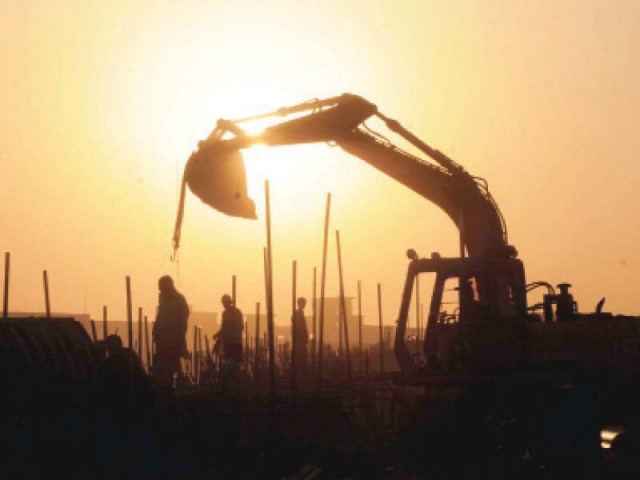MNA schemes to get record Rs87b
Each NA member of ruling coalition will receive Rs500m for uplift projects

The coalition government has decided to increase the discretionary budget for the development schemes of parliamentarians to a record Rs87 billion in order to spend an average of Rs500 million in each of the 174 constituencies of the National Assembly that voted for Prime Minister Shehbaz Sharif.
In addition to that, many members of the National Assembly who did not vote for the PM and sitting on the other side of the isle will also receive the funding before the upcoming general elections, sources told The Express Tribune.
Sources said that it had been decided to increase the budgetary allocation for the Sustainable Development Goals (SDGs) – a name used to fund the small electricity, gas, community welfare and road schemes – by Rs19 billion.
With the fresh increase, the total SDGs budget for the current fiscal year has shot up to Rs87 billion.
Sources said that the additional funds of Rs19 billion would be provided mostly by slashing the allocation of Rs18 billion for the Special Development Initiatives in the backward and poor districts of Pakistan.
Shehbaz Sharif secured 174 votes in April to become the prime minister under the coalition government of Pakistan Democratic Movement (PDM). Each MNA will get Rs500 million for spending in their constituency, according to the sources.
Funding for some of the projects of parliamentarians will also be adjusted against the budget allocation for provinces and special areas, which will be over and above the spending of Rs87 billion.
The money is not directly given to the members of National Assembly but is released for the schemes that they submit to the PM Office. The scheme is subsequently approved by a steering committee on the SDGs. “It is the federal cabinet’s decision to increase the SDGs budget by another Rs19 billion,” Ahsan Iqbal, Federal Minister for Planning and Development, confirmed to The Express Tribune.
Iqbal is also the chairman of the steering committee on SDGs that approves such schemes.
The spending is aimed at boosting the popularity of ruling alliance ahead of the general elections. At a joint press conference, Ahsan Iqbal said on Friday that the next general elections were not possible before the holding of population census, which was expected to be completed by March next year.
In 2018, the Pakistan Muslim League-Nawaz (PML-N) government spent nearly Rs33 billion under the PM’s SDG Achievement Fund but still it lost the elections and won only 84 seats of the National Assembly, including the reserved ones.
The last PML-N government spent over Rs130 billion in about three years in over 100 constituencies.
Later, the Pakistan Tehreek-e-Insaf (PTI) administration began the journey with a spending plan of Rs29 billion for its first year in power. For its last year, it allocated Rs64 billion.
Discretionary spending is a violation of the Supreme Court’s judgement in the discretionary spending case of former prime minister Raja Pervez Ashraf.
In order to avoid the judegment, the steering committee had been set up in 2016 that made decisions on the basis of recommendations made by the district-level committees.
The government has increased the funding for parliamentarian projects by 28%, or Rs19 billion, at a time when the country is facing fiscal constraints.
The economic crisis forced the federal government to drastically cut the development expenditure in the first quarter of current fiscal year to just Rs48 billion, which was hardly 7% of the annual allocation and two-thirds less than the official target for the quarter.
At least 10 ministries did not spend a penny on development works during the Jul-Sept period of current fiscal year due to no budget sanctioning.
Another group of 12 ministries received less than 5% of their annual allocation, a reduction made in the backdrop of economic crisis.
With the fresh increase, about 12% of the total development budget of Rs727 billion will go to fund the parliamentarian schemes. The Rs727-billion budget is already being reviewed for reduction.
Sources said that it had been planned not to stop the funding for the SDGs. The room for spending will be created by slowing expenditures on other projects in a bid to remain within the quarterly development spending ceilings agreed with the International Monetary Fund.
During the first quarter, no money was spent on the SDGs and it is now expected that half of the budgetary allocation will be released and spent in the second quarter, according to the sources.
Published in The Express Tribune, October 15th, 2022.
Like Business on Facebook, follow @TribuneBiz on Twitter to stay informed and join in the conversation.



















COMMENTS
Comments are moderated and generally will be posted if they are on-topic and not abusive.
For more information, please see our Comments FAQ